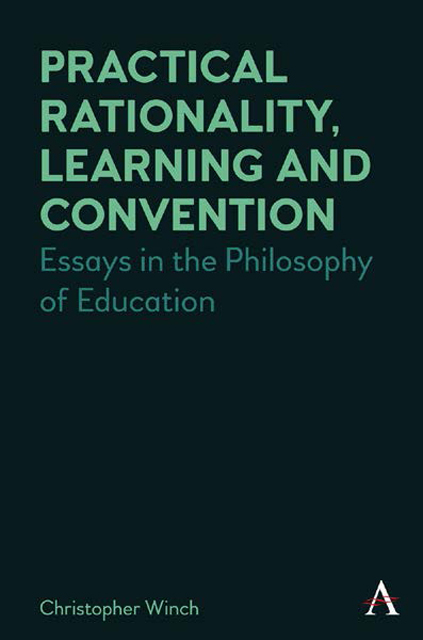Chapter Four - Professional Education, Know-How and Conceptual Ability: The Role of Education in the Attainment of Concept Mastery in Professional Work
Published online by Cambridge University Press: 09 December 2022
Summary
Introduction
Concept acquisition and concept mastery are key elements in learning. They are presupposed in the possession of both propositional and practical knowledge and are thus implicated in a very wide range of learning and teaching activities. Two of the most significant challenges facing educators concern the application and growth of knowledge after periods of formal instruction. These challenges are particularly significant, although by no means confined to professional and vocational education (VET). I will argue that the mastery as opposed to the possession of concepts in professional/VET is dependent to a large extent on the concept possessor being able to deploy those concepts in authentic professional situations. It is important, therefore, that we understand the relationships between concept acquisition, concept possession and concept mastery. Know-how as well as know-that involves concept possession and mastery, and the relationship between conceptual abilities and know-how will be outlined.
I shall approach the issue in the first instance by outlining Geach's account of concepts, then contrasting animal and human know-how, then by distinguishing between concept acquisition, concept possession and concept mastery, showing the role that education, both formal and informal, plays in developing each.
The argument is as follows:
1. The mastery of concepts underlies expertise, but expertise manifested in action involves more than concept mastery.
2. The mastery of concepts involves possession of sub-concepts manifested in relevant activity, thus implying that these sub-concepts are employed in professional practice.
3. Thus, relevant activity (hands-on practice) that instantiates concepts is essential to mastery of concepts in professional contexts.
4. Expertise requires activity both for the reason stated in 3 and because expertise in a form of action is more than concept mastery as it involves conceptual elements as an integral part of professional know-how.
5. Thus, the right kind of activities are required both for conceptual mastery and for the know-how required for expertise.
6. Where the form of action is professional activity, the development of concept mastery, expertise and know-how all require the activities of the profession itself in a professional or profession-like setting.
7. Practical education in an authentic professional setting needs to be co-ordinated with education that provides relevant conceptual understanding.
- Type
- Chapter
- Information
- Practical Rationality, Learning and ConventionEssays in the Philosophy of Education, pp. 37 - 52Publisher: Anthem PressPrint publication year: 2022

